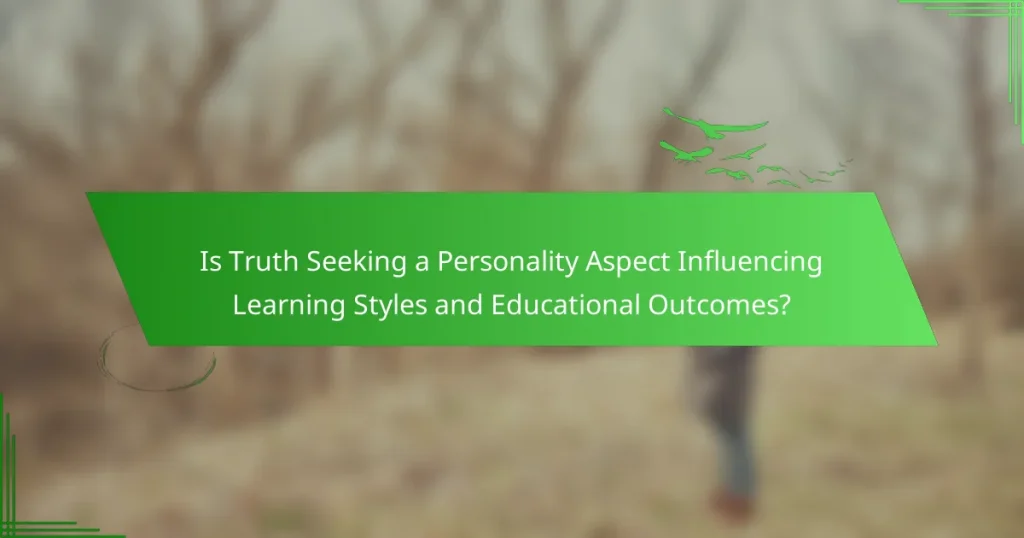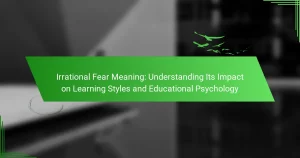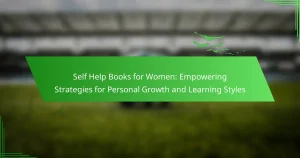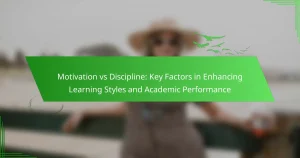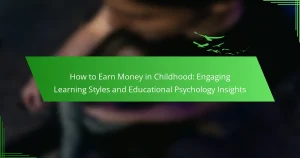Truth seeking significantly impacts how individuals learn and achieve educational success. It influences personality traits like curiosity and openness, which enhance engagement with diverse learning materials. Research shows that truth seekers often employ critical thinking and active learning strategies, leading to improved academic performance. Additionally, fostering truth-seeking behaviours in educational settings can optimise learning outcomes by promoting inquiry and reflection.
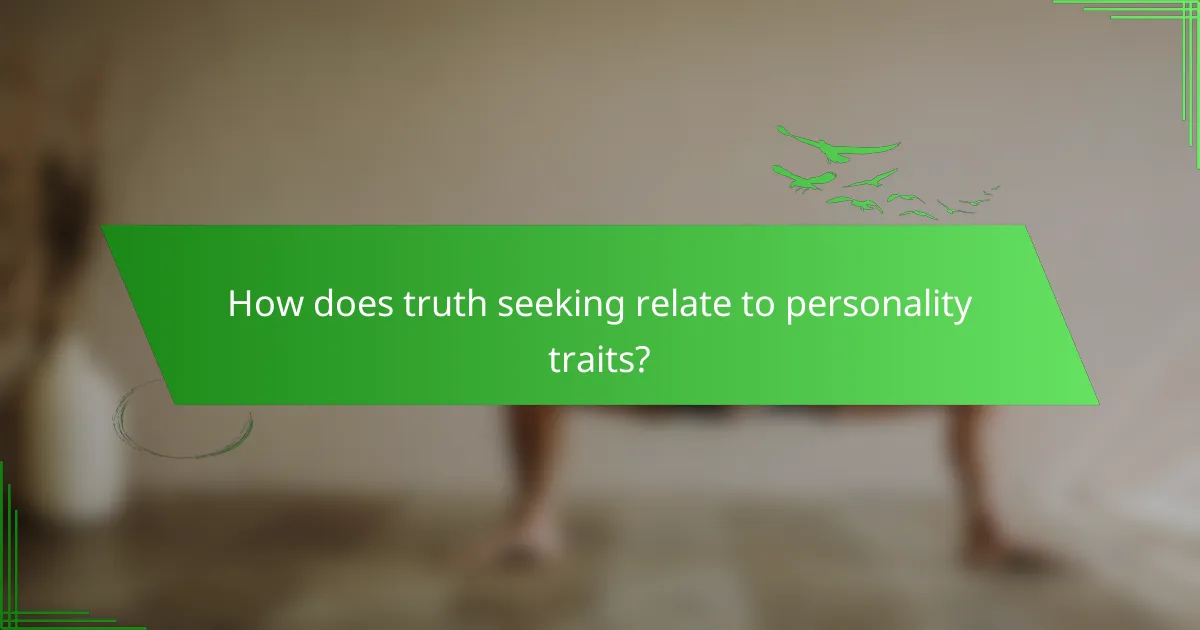
How does truth seeking relate to personality traits?
Truth seeking significantly influences personality traits, which in turn affects learning styles and educational outcomes. Individuals with high truth-seeking tendencies often exhibit traits like openness and curiosity, enhancing their ability to engage with diverse learning materials. Research indicates that these traits correlate with better academic performance and a deeper understanding of complex concepts. Furthermore, truth seekers tend to prefer analytical and critical thinking approaches, leading to more effective problem-solving skills in educational settings.
What are the key personality traits associated with truth seeking?
Truth seeking is characterised by traits such as curiosity, open-mindedness, and critical thinking. These personality traits significantly influence learning styles and educational outcomes. Individuals who exhibit high levels of curiosity tend to explore diverse perspectives, enhancing their understanding. Open-mindedness allows for the acceptance of new ideas, promoting adaptability in learning environments. Critical thinking enables effective analysis and problem-solving, directly impacting academic performance.
How do personality traits influence learning styles?
Truth seeking as a personality trait significantly influences learning styles and educational outcomes. Individuals who prioritise truth seeking tend to adopt analytical and critical thinking approaches, enhancing their ability to process information effectively. This trait fosters a preference for deep understanding rather than rote memorisation, leading to improved academic performance. Research shows that truth seekers are more likely to engage in active learning strategies, such as questioning and exploring diverse perspectives, which further enriches their educational experiences. As a result, truth seeking not only shapes learning styles but also correlates with higher educational attainment and lifelong learning habits.
What are the main learning styles identified in educational psychology?
The main learning styles identified in educational psychology include visual, auditory, reading/writing, and kinesthetic. Each style represents a unique approach to processing information. Visual learners benefit from diagrams and charts, while auditory learners thrive on listening and discussion. Reading/writing learners prefer text-based input, and kinesthetic learners excel through hands-on activities. Understanding these styles can enhance educational outcomes by tailoring teaching methods to individual preferences.
How does truth seeking manifest in different learning styles?
Truth seeking influences learning styles by enhancing critical thinking and adaptability. Individuals who actively pursue truth tend to favour experiential and analytical learning styles, which improve educational outcomes. Research indicates that truth seekers engage more deeply with material, leading to better retention and understanding. Additionally, they often employ diverse strategies, such as collaborative learning and reflective practices, to explore concepts thoroughly. This adaptability allows them to thrive in various educational environments, ultimately fostering a more profound learning experience.

What universal attributes link truth seeking and educational outcomes?
Truth seeking significantly influences learning styles and educational outcomes through enhanced critical thinking and engagement. Individuals who prioritise truth seeking tend to adopt active learning strategies, fostering deeper understanding. Research shows that truth seekers often achieve higher academic performance, as they are more likely to question assumptions and seek diverse perspectives. Additionally, their intrinsic motivation can lead to greater persistence in overcoming educational challenges. This connection underscores the importance of cultivating truth-seeking behaviours in educational settings to optimise learning outcomes.
How does truth seeking enhance critical thinking in learners?
Truth seeking significantly enhances critical thinking in learners by promoting open-mindedness and analytical skills. This personality aspect encourages students to question assumptions and evaluate evidence. As a result, learners develop stronger reasoning abilities and improve their educational outcomes. Research shows that truth-seeking individuals tend to engage more deeply with material, leading to better retention and application of knowledge. Moreover, fostering a truth-seeking mindset can create a collaborative learning environment where diverse perspectives are valued, further enriching the educational experience.
What role does truth seeking play in motivation and engagement?
Truth seeking significantly enhances motivation and engagement in learning. Individuals who prioritise truth seeking often demonstrate a deeper commitment to understanding concepts, leading to improved educational outcomes. This personality aspect fosters curiosity and resilience, encouraging learners to pursue knowledge actively. Research indicates that truth seekers are more likely to engage with diverse perspectives, enhancing their learning styles and overall academic performance.
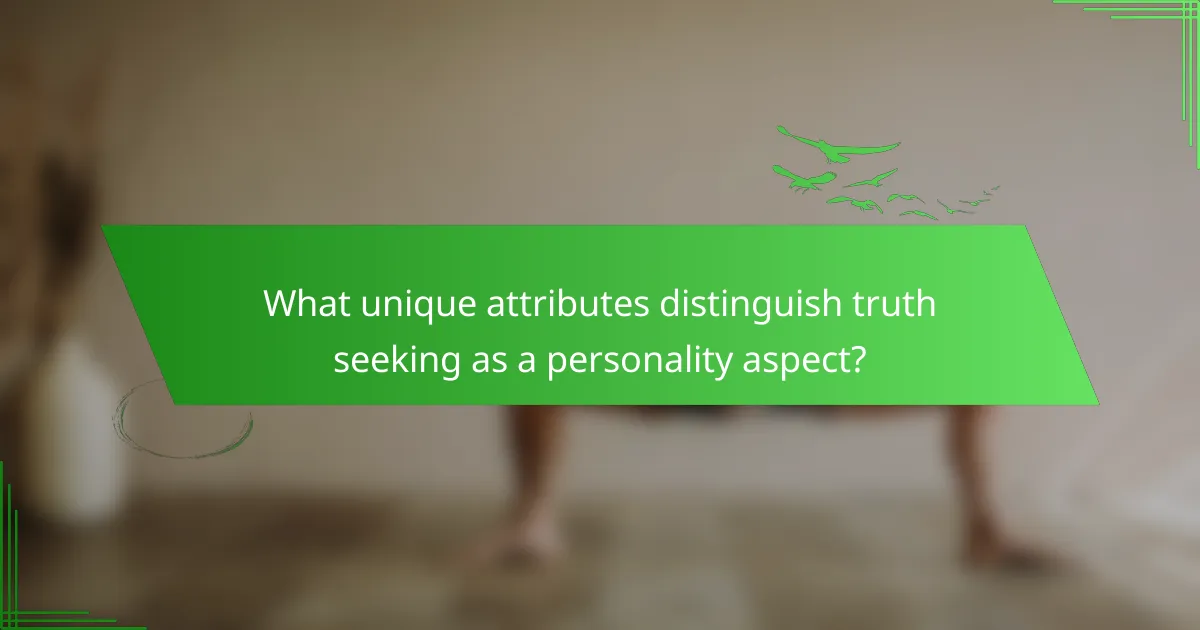
What unique attributes distinguish truth seeking as a personality aspect?
Truth seeking is distinguished by curiosity, openness to new ideas, and a critical mindset. These unique attributes influence how individuals approach learning and educational outcomes. Curiosity drives a desire for knowledge, while openness fosters adaptability in learning styles. A critical mindset enhances analytical skills, enabling deeper understanding and retention of information.
How does the level of truth seeking affect academic performance?
Truth seeking positively influences academic performance by enhancing critical thinking and engagement. Students who actively pursue truth tend to adopt effective learning styles, leading to better educational outcomes. Research indicates that high levels of truth seeking correlate with improved grades and retention of information. Moreover, this personality aspect fosters a deeper understanding of subjects, encouraging students to explore beyond surface-level knowledge.
In what ways does truth seeking influence collaborative learning experiences?
Truth seeking significantly enhances collaborative learning by fostering open communication and critical thinking. It encourages individuals to share diverse perspectives, leading to richer discussions and deeper understanding. This personality aspect promotes a culture of inquiry, where learners feel safe to challenge ideas and explore new concepts. As a result, educational outcomes improve through increased engagement and collective problem-solving. Truth seeking also cultivates trust among group members, essential for effective collaboration.
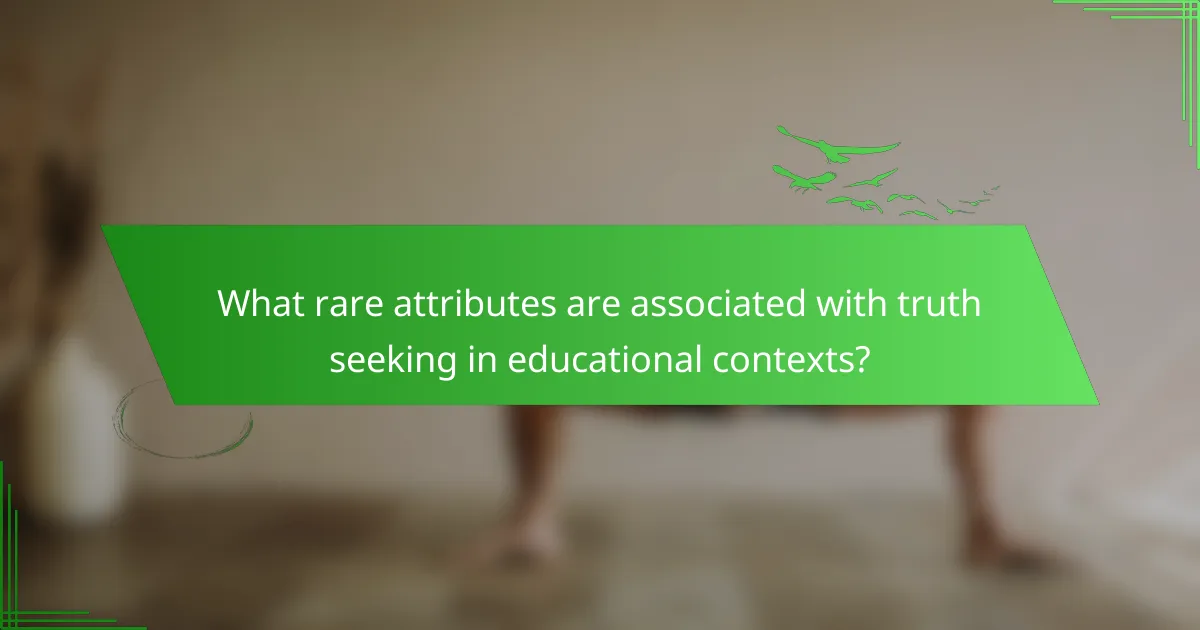
What rare attributes are associated with truth seeking in educational contexts?
Truth seeking in educational contexts often involves rare attributes such as intrinsic motivation, cognitive flexibility, and metacognitive awareness. These attributes enhance a learner’s ability to engage deeply with material, adapt their thinking, and reflect on their learning processes. Research indicates that students exhibiting these traits tend to achieve better educational outcomes, as they actively seek understanding and truth rather than merely memorising information.
How do cultural differences impact truth seeking behaviours in learning?
Cultural differences significantly influence truth-seeking behaviours, which in turn affect learning styles and educational outcomes. Diverse cultural backgrounds shape individuals’ perceptions of truth, leading to varying approaches in information processing and knowledge acquisition.
For instance, collectivist cultures may prioritise consensus and community validation, impacting how learners seek and interpret information. In contrast, individualistic cultures often emphasise personal inquiry and critical thinking. This divergence can lead to unique educational outcomes based on how truth is perceived and pursued in different cultural contexts.
Understanding these cultural influences is crucial for educators to tailor learning experiences that resonate with diverse student populations. By recognising the root attributes of truth-seeking behaviours across cultures, educators can enhance engagement and promote effective learning strategies.
What are the less common challenges faced by truth seekers in education?
Truth seekers in education face unique challenges that can hinder their learning experiences. These challenges include navigating misinformation, facing skepticism from peers, and encountering institutional resistance to unconventional ideas. Additionally, truth seekers may struggle with emotional fatigue from constant questioning and the pressure to conform to mainstream educational narratives. These factors can significantly impact their educational outcomes and learning styles.

How can educators foster truth seeking in their teaching practices?
Educators can foster truth seeking by encouraging critical thinking and open dialogue. This approach enhances learning styles and positively influences educational outcomes.
Implementing inquiry-based learning promotes curiosity and exploration. Educators should create a safe environment for students to express diverse viewpoints.
Integrating real-world problems into lessons helps students connect theories to practical applications. This strategy cultivates a habit of questioning and seeking evidence.
Providing constructive feedback encourages students to refine their understanding and approach. Continuous reflection on learning processes supports truth-seeking behaviour.
What strategies can be implemented to encourage truth seeking among students?
Encouraging truth seeking among students involves fostering an environment that values inquiry and critical thinking. Implement strategies that promote open dialogue, encourage questioning, and provide constructive feedback.
First, create a culture where curiosity is rewarded. Encourage students to ask questions and explore topics deeply. For example, implement project-based learning that allows students to investigate real-world issues, enhancing their engagement and understanding.
Second, integrate teaching methods that emphasise critical thinking skills. Use Socratic questioning to challenge assumptions and stimulate discussion. This approach helps students articulate their thoughts and consider different perspectives.
Third, provide resources that support independent research. Access to diverse materials, such as academic journals and expert interviews, empowers students to seek truth actively.
Finally, model truth-seeking behaviours yourself. Share your learning experiences and demonstrate how to navigate uncertainties. This authentic engagement can inspire students to adopt similar attitudes towards their education.
What common mistakes should educators avoid when promoting truth seeking?
Educators should avoid fostering a rigid mindset that discourages questioning and open dialogue. Promoting a culture of curiosity is essential for effective truth seeking. Common mistakes include overemphasising authority, which can stifle student engagement, and neglecting diverse perspectives, limiting critical thinking. Encouraging a fixed curriculum without room for exploration can hinder students’ ability to seek truth actively. Lastly, failing to model truth-seeking behaviours, such as admitting mistakes, diminishes the authenticity of the learning environment.
What best practices can enhance the relationship between truth seeking and learning outcomes?
Truth seeking enhances learning outcomes by fostering critical thinking and adaptability. Encouraging curiosity and open-mindedness leads to deeper engagement and retention. Implementing reflective practices, such as self-assessment and peer feedback, strengthens this relationship. Additionally, creating a supportive environment that values inquiry promotes collaboration and diverse perspectives, further enriching educational experiences.
